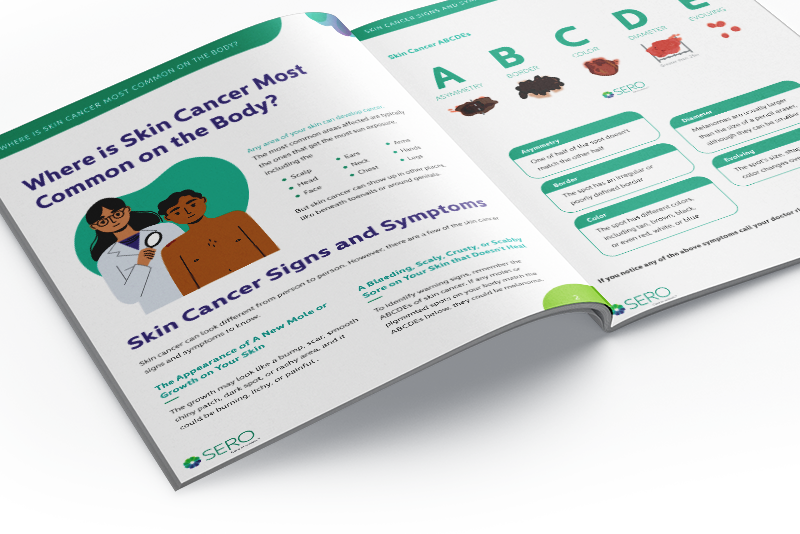Cancer is not what parents envision when imagining their son’s or daughter’s childhood. However, each year in the US an estimated 15,780 children are diagnosed with cancer. For patients and parents, a goal is often to to help a child get better as quickly as possible and get back to the childhood ahead of them. Luckily, many childhood cancers are highly treatable, especially with advancements in radiation technology that can more effectively target certain cancers.
Pediatric Cancer Treatment
What To Know
It’s important to discuss with your child’s oncologist the treatment of their cancer. Radiation therapy is used to treat many cancers, however, not every type of pediatric cancer calls requires this treatment modality.
Your doctor may recommend radiation therapy for the following pediatric cancers:
- Pediatric brain tumors
- Neuroblastoma
- Wilms tumors
- Retinoblastoma
- Sarcomas
- Lymphomas
- Certain types of leukemia
Diagnosing Pediatric Cancer
The method of diagnosis for pediatric cancer depends on the type. For example, for brain cancer tumor treatment in Charlotte, your child will likely undergo imaging tests like X-rays, computed tomography (CT) scans, or magnetic resonance imaging (MRI) scans. In contrast, a cancer like leukemia will result in blood and bone marrow tests drawn from the arm to measure blood cell levels. In certain cases, a biopsy or spinal tap may even be recommended.
We understand that these examinations can be scary, but the doctors at SERO will prepare you with all the information you need to feel comfortable and confident in the tests your child will have performed.
Pediatric Cancer Treatment
If your child’s doctor decides that radiation therapy should be considered in the treatment of your child’s cancer, you will meet with the Pediatric Radiation Oncology team to learn about the potential radiation treatments that can be administered.
Radiation therapy treatment is different from other modalities available for pediatric cancer, as it delivers a strong, concentrated, localized radiation beam to the targeted cancer cells. These treatment sessions are short, with shorter recovery periods than surgery, and will follow a routine outlined by your child’s doctor. Typically, sessions last for about 30 minutes and will occur daily over a few weeks.
Proton Beam Therapy
At SERO, our team of radiation oncologists is excited to be able to offer an advanced form of radiation therapy, proton therapy, in Charlotte, NC beginning in 2024. Proton therapy’s greatest benefit is the ability to deliver radiation doses directly to your child’s tumors, minimizing damage to surrounding healthy tissue. Our enduring commitment to advancing treatment options for pediatric cancer continues to deliver children to the other side of their treatment as cancer survivors.
Our cancer treatment in Charlotte is tailored to meet the specific needs of all our pediatric patients, considering their age, type of cancer, stage, and overall health. We employ a collaborative approach involving the entire care team, including surgeons, medical oncologists, cancer doctors who are also known as radiation oncologists, and child life specialists, to develop comprehensive treatment plans. By involving each specialist in their area, we can make the process of treatment as smooth and painless as possible for you and your child.
Though pediatric cancer has a more than 85% 5-year survival rate, part of what ensures your child’s long-term health is follow-up care and monitoring, including regular check-ups and imaging studies for potential late effects of radiation therapy.
Potential Side Effects
SERO always prioritizes the well-being and long-term health of your child. Radiation therapy does have potential side effects, but because of its advanced targeting abilities, damage to healthy tissues is minimized.
Possible side effects include:
- Fatigue, tiredness, or dizziness
- Reduced bone or muscle growth
- Cancer type-specific side effects
Your child’s radiation oncologist will discuss potential side effects that he or she is most concerned about at the time of your initial consultation.
Resources for Patients and Families

All SERO radiation therapy locations strive to create a caring and comfortable environment for your child. Our new location, opening in summer 2024, is being designed specifically with children in mind.
Additional support services recommended by your oncologist may include child life specialists, psychologists, social workers, and cancer support groups for everyone in your family affected by this unexpected and unfortunate life circumstance. The SERO team will be right by your side the whole way, providing educational materials, pointing you toward support organizations, and keeping you informed about pediatric cancer and radiation therapy.
You can count on SERO to effectively treat your child’s cancer with radiation.
Pediatric Cancer FAQs
Is radiation therapy a safer option than chemotherapy for children?
Chemotherapy and Radiation Therapy are both well-researched and safe for children. Your radiation oncologist will discuss potential side effects of treatment based on the area of the body being treated during your initial consultation.
Will radiation therapy hurt?
No. Radiation is painless as it enters the body. Certain side effects, like fatigue and body aches, may cause some slight pain after treatment.
What side effects should I expect from treating pediatric cancer with radiation therapy?
Fatigue is one of the most common side effects of radiation therapy. There also may be some changes to the skin, like itching, when treating some pediatric cancers with radiation therapy.
How can I help my child prepare for their appointments?
You should always keep your child aware of their situation with age-appropriate language. SERO can also recommend child life specialists, who will show your child the imaging machines and other equipment they will come into contact with during treatment, as well as explain the steps of the process simply to them. Preparedness and coping mechanisms will help your child feel ready to take on radiation therapy.


